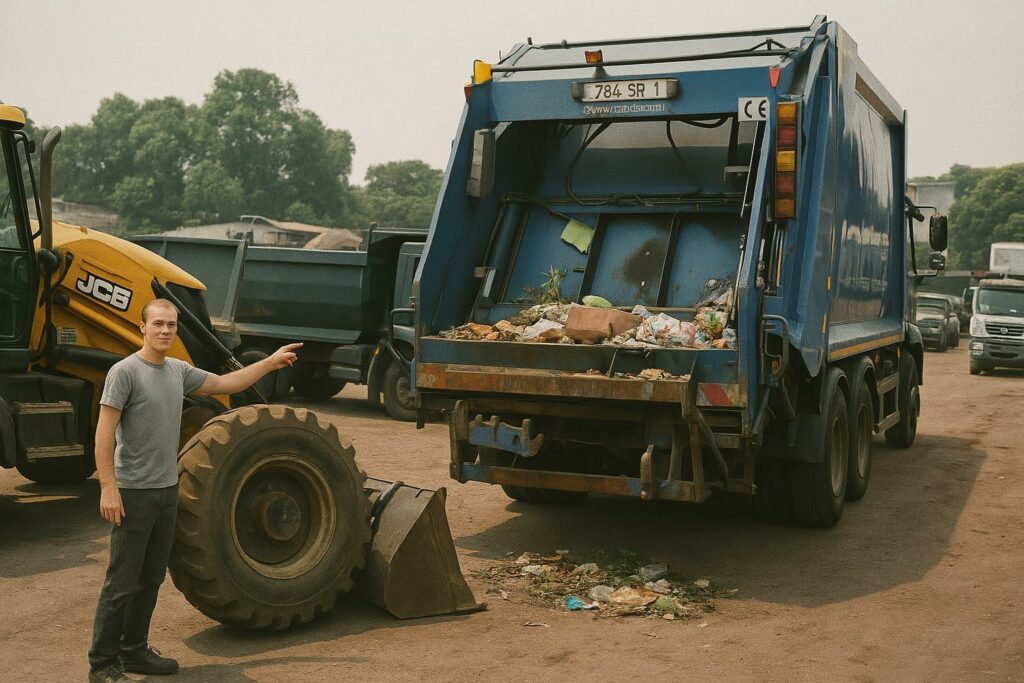Overflowing bins meet ambitious promises
When the Republic of Congo signed a twenty-year public-private partnership with Turkey’s Albayrak Group in late 2022, the memorandum hailed the arrival of a ‘comprehensive urban sanitation revolution’. The contract—reportedly valued at 150 million USD over its first five years (Jeune Afrique, November 2022)—mandates the Turkish conglomerate to modernise waste collection, refurbish landfills and introduce recycling facilities in Brazzaville and Pointe-Noire. The optimism that followed the ceremonial launch, however, is now colliding with a visible accumulation of household refuse along major arteries such as Avenue Matsoua in Brazzaville and the coastal Boulevard du Général-de-Gaulle in Pointe-Noire. Residents interviewed by local daily Les Dépêches de Brazzaville complain of ‘trucks that pass irregularly’ and of an ‘odour that no longer leaves the neighbourhood’.
In response, Albayrak’s regional director, Mehmet Oruç, maintains that the company inherited ‘decades of infrastructural neglect’ and requires a minimum transitional period of eighteen months before ‘systemic improvements’ become perceptible. Yet that explanation sits uneasily with a public that associates the firm with its comparatively swifter turnarounds in Dakar and Mogadishu (AFP, April 2023).
Financing puzzles and contractual opacity
Beyond the overflowing bins lies a financing architecture that remains largely undisclosed. Congolese officials insist that a mixed funding model—combining sovereign guarantees, municipal fees and concessional loans from Türk Eximbank—will protect public coffers. Still, the National Assembly’s economic commission notes that only a summarised term sheet has been submitted for legislative scrutiny (Procès-verbal de la Commission Économie, February 2024). Opposition deputy Destin Gavet contends that ‘the precise schedule of state disbursements, foreign-currency liabilities and penalty clauses is nowhere in the public domain’, raising fears of contingent liabilities sliding off-balance-sheet.
Such opacity challenges the governance benchmarks set by the International Monetary Fund in its 2023 Extended Credit Facility programme with Brazzaville, which explicitly calls for transparent procurement in public-service concessions. For foreign diplomats observing Congo’s debt sustainability metrics, any hidden fiscal exposure linked to Albayrak’s contract risks complicating future multilateral negotiations.
Diplomatic undertones of Ankara-Brazzaville alignment
Turkey’s commercial footprint in sub-Saharan Africa has expanded markedly under President Recep Tayyip Erdoğan’s ‘Opening to Africa’ doctrine. In that context, the Albayrak concession serves not merely as a sanitation project but also as a vector of soft power. Ankara inaugurated an embassy in Brazzaville in 2014 and has since multiplied scholarship programmes, military-training exchanges and trade fairs. Senior Congolese officials privately concede that the waste-management deal formed part of a broader quid pro quo that includes Turkish interest in port infrastructure and mining logistics (Africa Confidential, July 2023).
While such geopolitical courtship is hardly unusual, it complicates local perceptions of accountability. Civil-society groups now fear that diplomatic imperatives could dampen the government’s readiness to penalise contractual non-performance. The precedent of Guinea, where Albayrak retained its sanitation concession despite repeated service lapses until a presidential reprimand in 2021, is frequently cited as a cautionary tale.
Operational bottlenecks on the ground
Albayrak’s project blueprint envisages the deployment of 120 compactor trucks, the rehabilitation of the Mpila and Tchiamba-Nzassi landfills, and the creation of 1,500 local jobs. To date, customs data analysed by the think tank Initiative pour la Transparence Urbaine indicate that only forty-two vehicles have cleared Pointe-Noire port, many of which remain idle owing to a shortage of spare parts compatible with Congolese fuel standards.
A further obstacle is the absence of a formalised waste-segregation regime. Public-awareness campaigns scheduled to begin last December were postponed after the Ministry of Communication failed to release the necessary media grants. Without household sorting, experts argue, landfill capacities will reach saturation by late 2025, negating any gains from fleet expansion. Urban-health specialist Dr Sylvie Mapuana warns that ‘rising leachate seepage during the rainy season could aggravate water-borne diseases in districts already vulnerable to cholera’.
Albayrak counters that a pilot recycling centre in the Ngoyo district will open in June 2024, asserting that ‘tangible progress’ will silence critics. Yet local consulting firm GeoStrat recently estimated that the pilot’s projected throughput covers a mere 4 percent of Pointe-Noire’s daily waste output.
Navigating public distrust and the path forward
The convergence of financing murkiness, geopolitical entanglements and operational delays has fostered a climate of distrust. Public-opinion polling by Institut Républicain in March 2024 found that 62 percent of Brazzaville residents doubt the concession will meet its five-year benchmarks. In a subtle yet notable move, the Prime Minister’s office has convened a multi-stakeholder monitoring committee, including representatives from the World Bank and the European Union delegation, to produce quarterly performance audits.
Whether such oversight will translate into on-the-ground change rests on Albayrak’s capacity to ramp up its fleet, secure spare-parts logistics and harmonise tariff collection with municipal authorities. Should the company succeed, it stands to fortify Ankara’s status as a pragmatic development partner in Central Africa. Failure, conversely, may embolden critics who view Turkey’s African overtures as opportunistic and transactional.
A delicate test case for urban governance
In the end, the Congolese-Turkish sanitation venture extends beyond refuse disposal. It mirrors the broader dilemmas confronting African cities: balancing foreign investment with transparency, aligning geopolitical aspirations with local accountability, and marrying infrastructural ambition to pragmatic delivery. For Brazzaville and Pointe-Noire, the stakes are human as much as political—cleaner streets, reduced disease burden and revived public trust.
The coming twelve months will thus serve as a delicate test case. Should Albayrak translate contractual rhetoric into visible transformation, it may rewrite the narrative of public-private partnerships in Central Africa. If not, the overflowing bins on Avenue Matsoua could become a permanent monument to unkept promises, echoing far beyond Congo’s borders.

